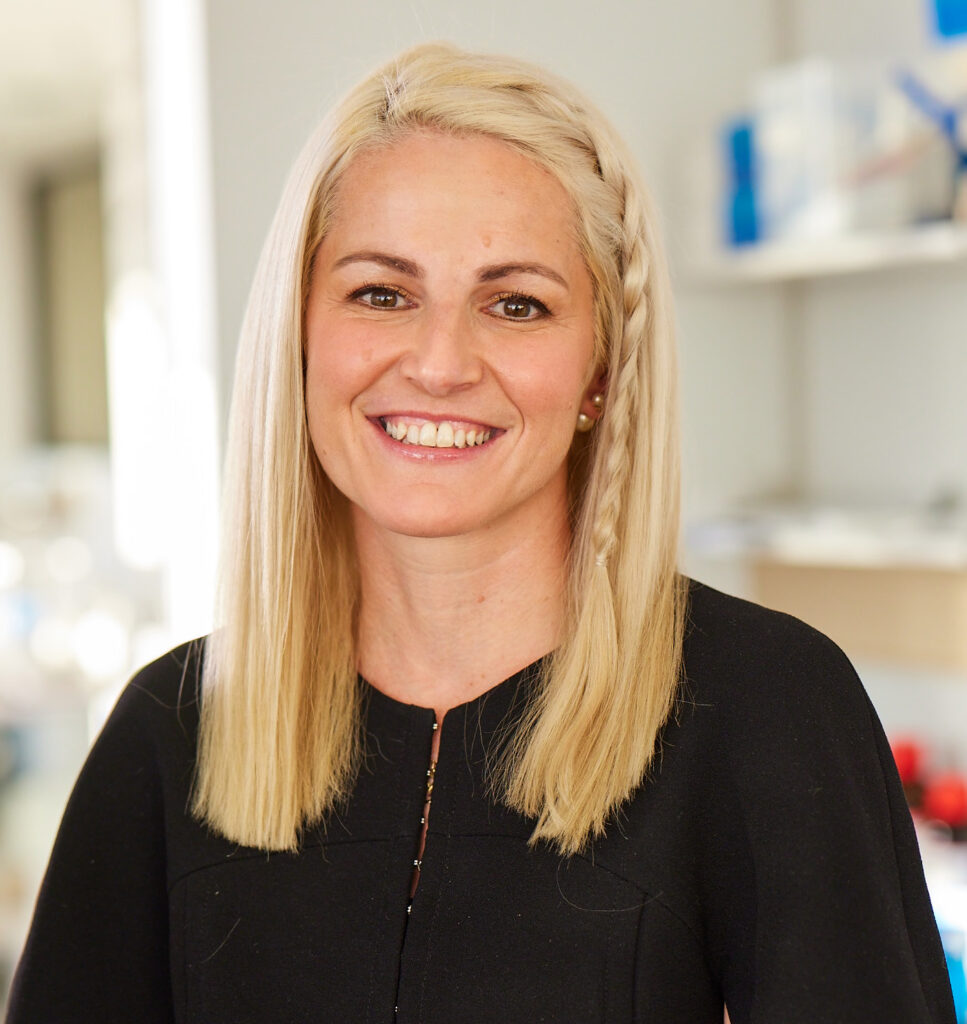Pancreatic cancer remains one of the most aggressive and treatment-resistant forms of cancer, with limited therapeutic options and poor survival outcomes. However, a research project led by Professor Marina Pajic at the Garvan Institute of Medical Research offers real hope.
With support from a De Angeli Cancer Research Grant, funded by St Vincent’s Clinic Research Foundation, Professor Pajic and her team are exploring how a common anti-fungal medication, itraconazole, could be repurposed to improve outcomes for people with pancreatic cancer. By combining this existing drug with standard chemotherapy, the team aims to disrupt the environment that allows pancreatic tumours to thrive, making cancer cells more vulnerable to treatment.
Now in the second year of this three-year grant, the team has made strong progress across all areas of the research.
One of the key breakthroughs involves a protein called LCN2. The team analysed tissue from 400 pancreatic cancer patients and found that high levels of LCN2 were associated with poorer outcomes. Further experiments showed that reducing LCN2 levels using itraconazole may improve the body’s immune response to the cancer, opening the door to more effective combination treatments.
The research also shows that itraconazole appears to “normalise” tumour blood vessels, reduce scar-like tissue known as fibrosis, and allow more immune cells to reach the tumour. These are all promising signs that the drug is helping the body fight back.
Testing in advanced lab and mouse models has confirmed that combining itraconazole with existing chemotherapy significantly improves survival. Early results also suggest the drug could enhance the effects of immunotherapy, which is particularly exciting in a cancer that often resists such treatment.
A key contributor to this work was Dr Sean Porazinski, who led the team under Professor Pajic’s supervision and played a central role in driving the research forward. Although Dr Porazinski has since moved to industry, his leadership and dedication were instrumental in achieving these results.
Thanks to these promising results, the team is now preparing to move into clinical trials. With further funding secured, including $4.2 million from the Kinghorn Foundation, the next phase will test itraconazole-based combination therapies in people with pancreatic cancer.

“The De Angeli Cancer Research Grant I received has been pivotal in allowing me to generate the necessary pre-clinical data to translate my novel personalised therapeutic approaches in pancreatic cancer towards clinical testing,” says Professor Pajic. “This support has also contributed to our Translational Oncology Program securing $4.2 million to launch three clinical trials for pancreatic cancer in Australia.”
St Vincent’s Clinic Research Foundation acknowledges the Gadigal and Bidjigal peoples of the Eora Nation as the Traditional Custodians of the land on which we stand, and we pay our respects to Elders past, present, and emerging.